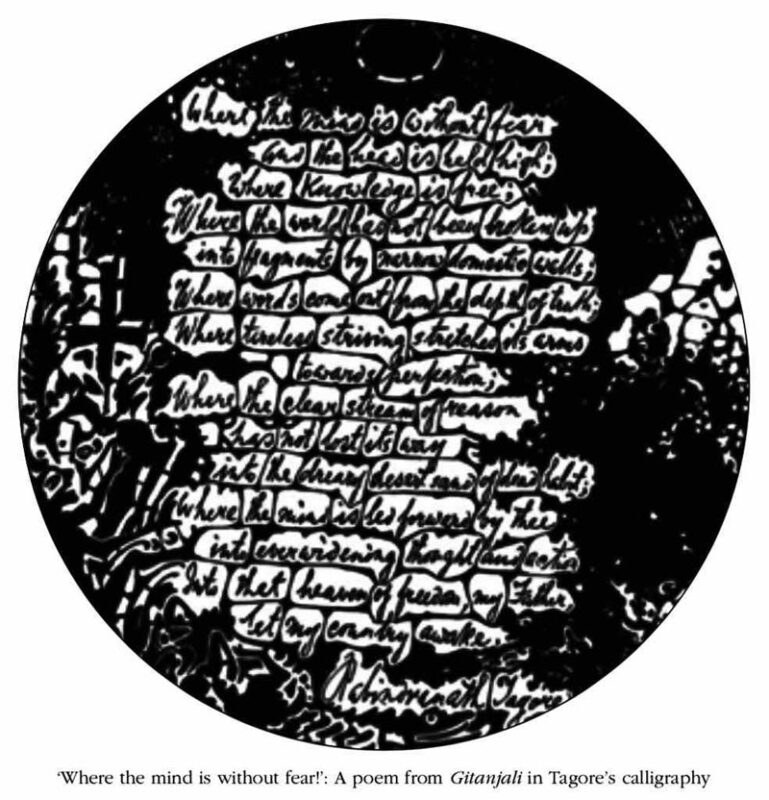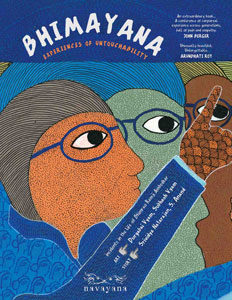“Education has to liberate a person from narrow world view and the boundaries of caste, community, race and gender. Teachers have been entrusted with the responsibility of moulding the young minds to understand the world and make it better.” – Shri Pranab Mukherjee, President of India (National Award 2014 to Teachers)
Diversity, plurality and tolerance are “core values of our civilisation”: Rashtrapati Bhavan >>
Recently, Aamir Khan – leading film star and household name all over the India where Bollywood reigns supreme – began a prime-time show tackling India’s most serious issues. And the whole country is riveted. […]
Our elites care passionately about India’s image. We love to talk about our proud and glorious past, our ancient heritage. Yet we pretend the evil in our country does not exist.
Aamir wrote: ‘we can never be considered a superpower if we continue to practice untouchability.’ This is a message our rich and powerful care about. It’s one we need to hear over and over again. […]
Crucial social issues can be raised by fun movies, getting people to change their attitudes. The key is to make it ‘not cool’ to have a feudal backward medieval mindset. I believe India’s youth will come on board, for a variety of reasons.
Our poor and our oppressed so desperately need a new tomorrow. Rabindranath Tagore, poet, Nobel laureate and freedom fighter, pleaded for a new dawn with our independence. A new India ‘where the mind is without fear and the head is held high’. Can Bollywood make this happen? Or Aamir Khan?
Source: “Can Bollywood shatter India’s caste system?” by Mari Marcel Thekaekara, New Internationalist, July 13, 2012
Address : https://www.newint.org/blog/2012/07/13/bollywood-untouchable-force/?utm_medium=ni-email&utm_source=message&utm_campaign=intl-enews-2012-07-26
Date Visited: 20 December 2020
[Bold typeface added above for emphasis]
Reports in the Indian press | List of periodicals included in this search >>
Search tips
Combine the name of any particular state, language or region with that of any tribal (Adivasi) community.
Add keywords of special interest (music, poetry, dance just as health, sacred grove and biodiversity); learn about the rights of Scheduled Tribes such as the “Forest Rights Act” (FRA); and the United Nations “Declaration on the Rights of Indigenous Peoples”, “Universal Declaration of Human Rights”, “women’s rights”, or “children’s right to education”.
Specify any other issue or news item you want to learn more about (biodiversity, bonded labour and human trafficking, climate change, ecology, economic development, ethnobotany, ethnomedicine, global warming, hunter-gatherers in a particular region or state, prevention of rural poverty, water access).
For official figures include “scheduled tribe ST” along with a union state or region: e.g. “Chhattisgarh ST community”, “Himalayan tribe”, “Scheduled tribe Tamil Nadu census”, “ST Kerala census”, “Particularly Vulnerable Tribal Group Jharkhand”, “PVTG Rajasthan”, “Adivasi ST Kerala”, “Adibasi ST West Bengal” etc.
In case the Google Custom Search window is not displayed here try the following: (1) toggle between “Reader” and regular viewing; (2) in your browser’s Security settings select “Enable JavaScript” | More tips >>
Note: hyperlinks and quotes are meant for fact-checking and information purposes only | Disclaimer >>
“Opportunities are limited, jobs are scarce and so far ‘development’ remains a slogan. There’s a lot that is being done to keep caste going in spite of saying that we are trying to erode caste. We are, of course, dodging the real issue. It’s true that there has been a great deal of exploitation of Dalit groups and OBC’s [Other Backward Castes] in past history; making amends or even just claiming that we are a democracy based on social justice demands far more than just reservations. The solution lies in changing the quality of life of half the Indian population by giving them their right to food, water, education, health care, employment, and social justice. This, no government so far has been willing to do, because it means a radical change in governance and its priorities.” – Romila Thapar (Emeritus Professor of History, Jawaharlal Nehru University) in You can’t run disciplines on the basis of the notions that particular governments may have”: An Interview with Romila Thapar by Nikhil Pandhi (Caravan Magazine, 7 October 2015) | Learn more >>
“The theoretical debate on caste among social scientists has receded into the background in recent years. [C]aste is in no sense disappearing: indeed, the present wave of neo-liberal policies in India, with privatisation of enterprises and education, has strengthened the importance of caste ties, as selection to posts and educational institutions is less based on merit through examinations, and increasingly on social contact as also on corruption.” – Harald Tambs-Lyche (Professor Emeritus, Université de Picardie, Amiens) in “Caste: History and the Present” (Academia Letters, Article 1311, 2021) | Learn more >>
India Perspectives (24 No. 2/2010) | More about Tagore and rural education >>
Source: “Tagore, Gitanjali and the Nobel Prize” by Nilanjan Banerjee in

Freedom: Accountability, Democracy, Education & Rights of Indigenous Peoples >>
Tip: Bhimayana: Experiences of Untouchability: Critically acclaimed as “a magnificent work of breathtaking art that symbolises the soul-stirring biography of an exceptional leader” and “a must-read for every child and adult in the nation and a must-include in every school’s curriculum”. (Sowmya Sivakumar in The Hindu Literary Review) | Find a library copy on WorldCat.org | Learn more >>
See also
ACCORD – Action for Community Organisation, Rehabilitation and Development
Articles by Mari Marcel Thekaekara (writer and Co-Founder of ACCORD-Nilgiris)
Ashwini community health programme
Childhood | Childrens rights: UNICEF India | Safe search
eJournals, eBooks & reports | eLearning
eBook | Background guide for education
Education and literacy | Right to education
Forest Rights Act (FRA) | Legal rights over forest land
Gudalur | Communities: Paniya | Kattunayaka | Mullukurumba | Bettakurumba
Health and nutrition | Recommendations by the Expert Committee
Shola Trust | Nilgiri biosphere
Western Ghats – tribal heritage & ecology
What is the Forest Rights Act about?
Who is a forest dweller under this law, and who gets rights?
